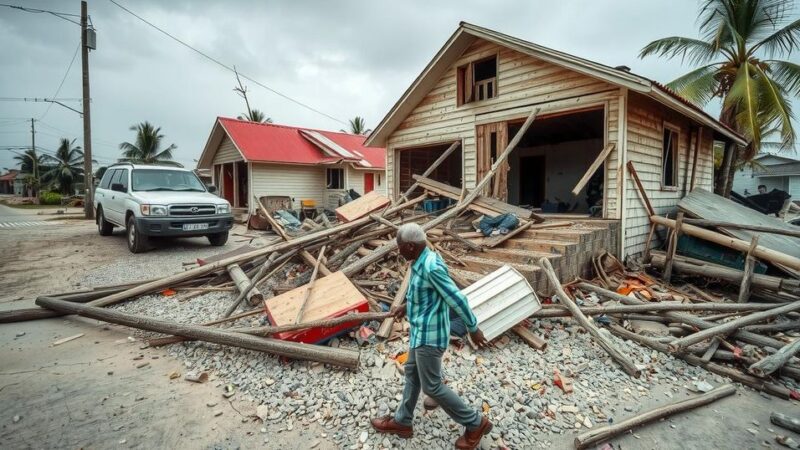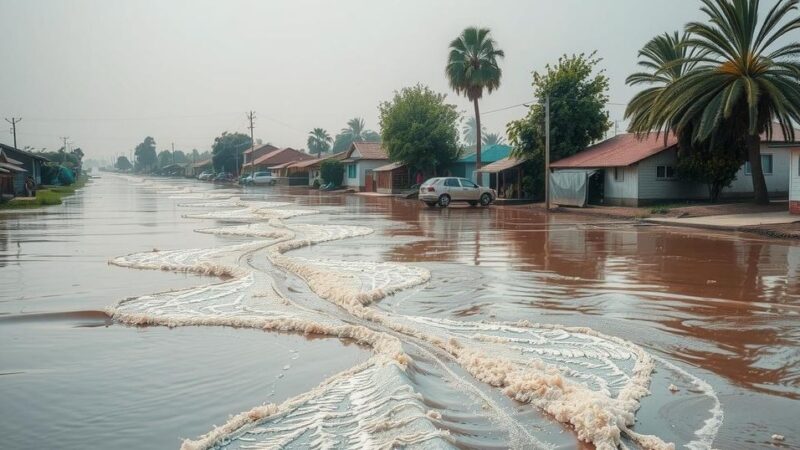At COP29, critiques arose over the insufficient climate finance commitments outlined in the New Collective Quantified Goal (NCQG), with developed nations pledging only US$300 billion annually compared to the US$1 trillion needed by developing countries. The conference revealed systemic failures in climate financing, procedural controversies, and ongoing disparities between the needs of developing nations and the efforts of wealthier countries.
At the recent COP29, which focused heavily on climate finance, criticisms were leveled at the resolutions formed regarding the New Collective Quantified Goal (NCQG). India’s negotiator, Chandni Raina, pointedly described the resolution as an “optical illusion,” indicating that it fails to address the significant challenges posed by climate change. Developing nations are demanding a substantial annual mobilization of US$1 trillion, yet the adopted framework only commits to US$300 billion until 2035, far below the necessary requirements for effective climate mitigation and adaptation. This disparity highlights the ongoing inadequacy of global cooperation and the reluctance of developed nations to fulfill their responsibilities under the United Nations Framework Convention on Climate Change (UNFCCC) principles.
Moreover, there was disappointment surrounding the lack of specificity regarding adaptation measures for the severe impacts of climate change and the irreparable losses incurred. Historical evidence demonstrates the discrepancies between climate finance pledges and actual contributions, with many commitments either unmet or delayed. COP29’s proceedings illustrated a widening chasm between developing nations, which bear the brunt of climate change impacts, and wealthier countries that struggle to meet even modest targets for financing climate action. Access to essential funding remained contentious, with developed nations arguing for realistic targets and emerging economies like China to be included in obligations, despite their lower emissions trajectories compared to developed nations.
Critiques also emerged regarding the procedural conduct of COP29. Azerbaijan’s presidency faced scrutiny as allegations surfaced of inadequate deliberations, leading to a walkout by the Least Developed Countries (LDCs) and the Alliance of Small Island States (AOSIS). Furthermore, contrasting narratives emerged, where developed nation leaders claimed historic achievements while developing countries highlighted the inadequacies of the outcomes. Moving forward, COP30 in Brazil must address the failures of its predecessors to ensure that meaningful resolutions are passed that adequately address the climate crisis and the urgent funding needs of developing nations.
In summary, COP29 failed to accomplish the necessary commitments and resolutions expected by developing countries in the climate finance dialogue. Unless developed nations acknowledge and act upon their responsibilities, the global community faces dire consequences, further emphasizing the urgent need for cooperative climate financing strategies.
The 29th United Nations Conference of Parties (COP29), referred to as the ‘Finance COP,’ aimed to establish the New Collective Quantified Goal (NCQG) as a climate fund to assist in mitigation and adaptation strategies. The discussions at COP29 highlighted the growing divide between the financing needs of developing nations, which require at least US$1 trillion annually, and the insufficient promises made by developed nations, which only outlined a meager US$300 billion until 2035. Furthermore, this conference underscored the historical inequity in climate responsibilities, particularly the obligations of developed countries that have contributed significantly to pollution and climate change despite their failure to meet past financial commitments. The conference also faced numerous procedural controversies that called into question the legitimacy of the negotiations and outcomes.
COP29 highlighted the inadequacies of climate finance resolutions, reflecting a significant gap between what developing nations need and what developed countries are willing to offer. The outcomes largely fell short of expectations, revealing the urgent need for a reevaluation of commitments and responsibilities in addressing climate change. Moving forward, it is essential for COP30 to not only acknowledge but also effectively act upon the funding discrepancies that persist, ensuring that meaningful progress is made for the future of the planet.
Original Source: www.orfonline.org







